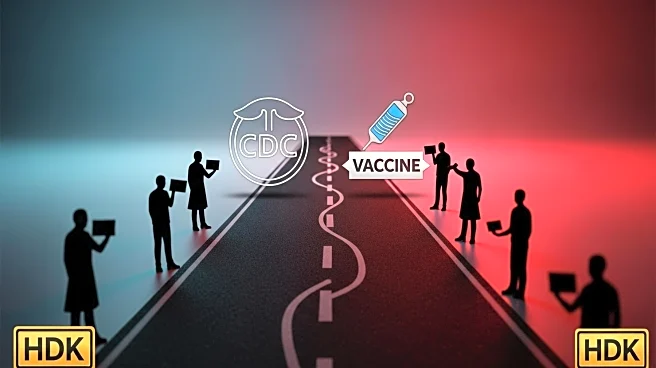What's Happening?
Robert F. Kennedy Jr., the Secretary of Health and Human Services, is under scrutiny from Republican lawmakers following a significant reorganization at the Centers for Disease Control and Prevention (CDC). During a recent hearing on Capitol Hill, Kennedy faced bipartisan questioning regarding his controversial views on vaccines and the implications of the CDC's restructuring. The hearing highlighted tensions as lawmakers from both parties expressed concerns about the potential impact of these changes on public health policy. The session also included discussions on the release of files related to the Jeffrey Epstein case, with a bipartisan group of lawmakers advocating for transparency.
Why It's Important?
The scrutiny of Robert F. Kennedy Jr. underscores the ongoing debate over vaccine policies and public health management in the United States. The CDC's restructuring could have significant implications for how public health data is managed and communicated, affecting both policy decisions and public trust. Kennedy's controversial vaccine views have been a point of contention, potentially influencing public perception and compliance with health guidelines. The bipartisan nature of the questioning suggests a broader concern about maintaining effective and transparent health governance, which is crucial for managing current and future public health challenges.
What's Next?
As the debate continues, further discussions and potential legislative actions may arise concerning the CDC's role and the broader public health strategy. Lawmakers may seek to establish clearer guidelines or oversight mechanisms to ensure that public health decisions are based on scientific evidence and maintain public trust. Additionally, the call for transparency in the Epstein case files could lead to further investigations or legislative proposals aimed at increasing accountability in high-profile cases.










